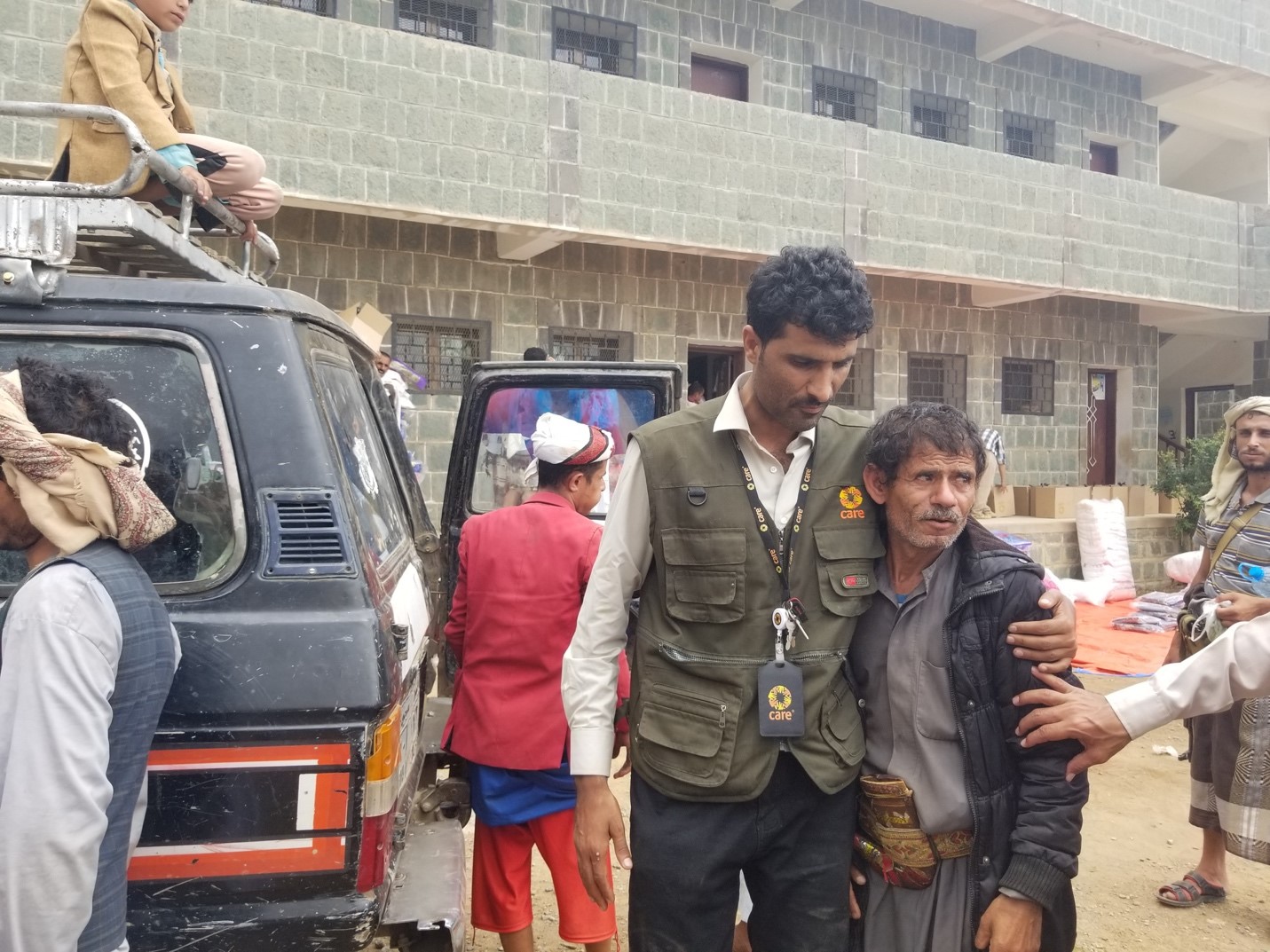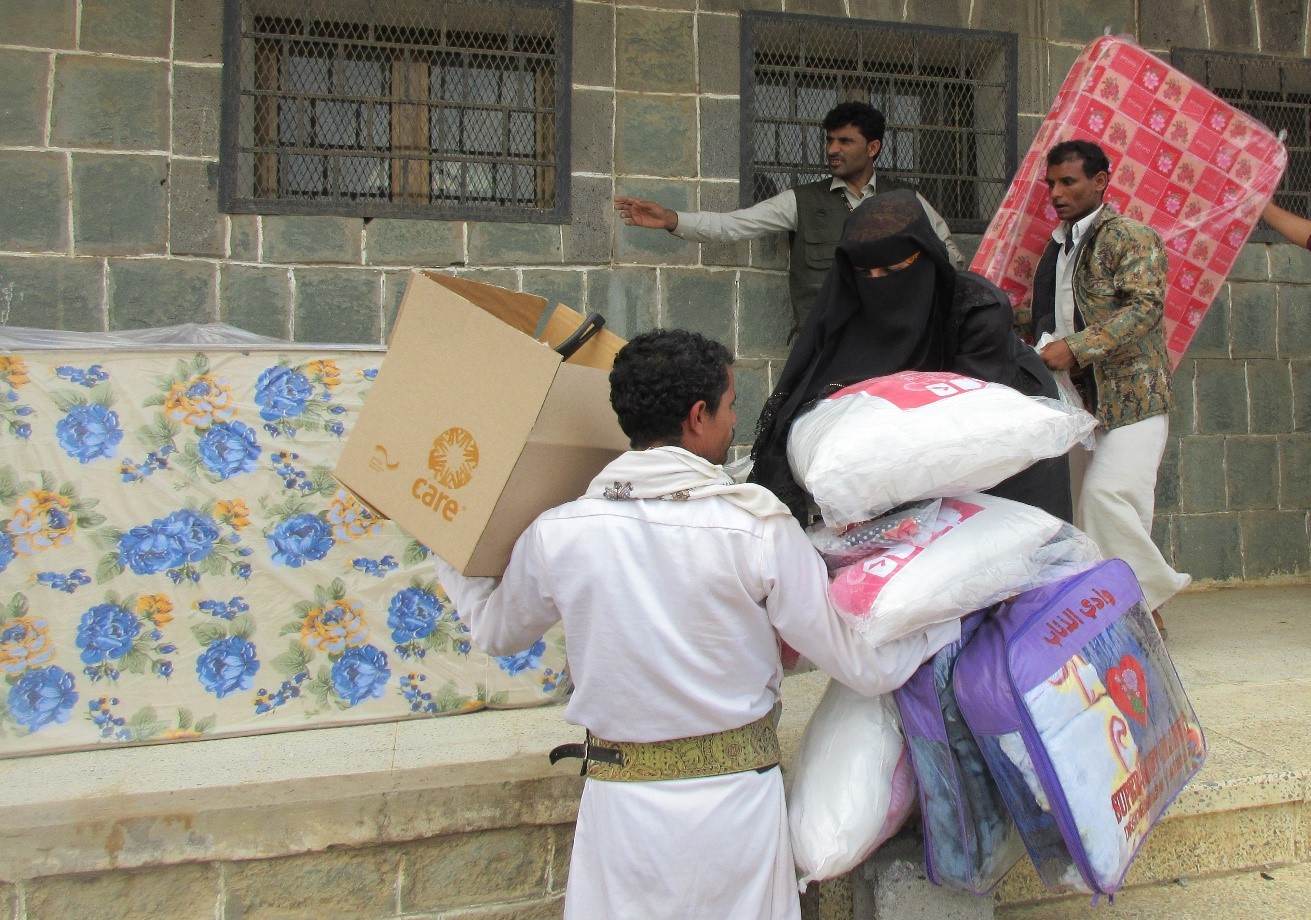This last August was a gloomy month for the inhabitants of two sub-districts in Milhan district of northwest Yemen. In a country already suffering heavily due to almost five years of unrelenting conflict, heavy rain and flooding in Milhan caused the deaths of nine people, as well as the loss of houses, animals and land.
To suffer such devastating flooding is to face a monumental challenge. This is true for the vast majority of people living in the flood-affected areas. They suffered at every moment throughout the five hours of persistent heavy rain. Some died, and some felt as if they were dying of fear from being separated from their loved ones. Others lost their land and had to desert their homes with no hope of returning. Many animals were swept away by the floods, while others were strangled or trapped between trees when trying to flee.
The suffering of Mohammed Alghail and his family is worse than anything you might imagine. They have experienced pain beyond words. They lost their wives, their children, their land, their house, and even their only cow who used to give them milk.
It has been now more than a month since Mohammed’s village was hit by the most devastating floods in living memory. There he stands, a fifty-nine-year old man with eyes red from crying, and his weak body torn by the loss of nine members of his family. The place that used to be his home is now nothing more than a heap of rubble.
Though severely affected by the loss of his mother, his wife and his two children, Khaled – who is the eldest son of Mohammed Alghail – appears quite strong. He says that the first moments of the trauma were very difficult for him. Upon hearing the news of the death of their family members, his father and his brothers had to be held by the villagers inside one of their neighbour’s homes. They were trying to commit suicide by throwing themselves in the valley, to be swept away by the flood.
“This unexpected loss of our family and property has shaken us a great deal and has changed our lives overnight,” Khaled tells me. “We had breakfast and lunch together before the rains came, but we had dinner alone without them afterwards.” He adds that on the day of the flooding they “Woke up rich but slept poor.”
After the painful trauma of losing their family, their suffering feels never-ending. Khaled tells me how much he misses his family, and remembers all the beautiful moments they spent together. “I wish I could have even one look at my dead mother, my dead children and my dead brothers. My father and my young brothers keep visiting the valley from time to time in search of my mother’s body. I am afraid my father will go mad if he continues behaving like this.”
A few hours following the disaster, CARE’s team received an urgent appeal from the local authorities to provide emergency assistance to people affected by the floods in Milhan district. CARE immediately sent two teams to the sub-districts of Bani Wahb and Alrawdah. One team identified the needs of the people affected by the flooding, while a second team registered households most in need of assistance. The next day – within less than 48 hours of the devastating floods – CARE distributed cash assistance to these households; and after one week the team provided them with blankets, mattresses, kitchen utensils and other items.

